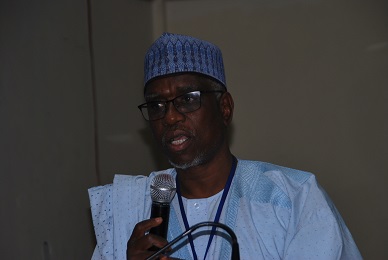
The Executive Secretary, National Universities Commission, (NUC) Abuja, Professor Abubakar Adamu Rasheed mni, MFR, FNAL has debunked allegations that some staff of NUC were engaged in corruption during accreditation. Addressing an end of year Press Conference, Prof. Rasheed said that in the conduct of accreditation only Professors evaluate, score and make recommendations, while NUC staff served as mere secretaries with no powers to influence the outcome. He said “to conduct accreditation on any programme, a panel consisting of at least three Professors in the relevant subject area and one NUC representative was set up. The three professors are to evaluate the programme based on set parameters, give their scores, make comments and recommend a status for the programme to the commission”. He further stated that the process of accreditation entails a peer review process where only professors drawn from the Nigeria University system (not NUC) were always used as panelists and that only one NUC staff, according to him, served as secretary and administrative monitor with no statutory powers to influence the outcome of the accreditation exercise.
More importantly, he said, the panelists and the NUC representative were fully mobilized by the commission before they embark on any accreditation trip. He said there had been massive reforms the commission initiated in the last three years, including curriculum re-engineering, introduction of new programmes, unbundling of some programmes, research and innovation among others, all aimed at overhauling the Nigeria University System to bring it to the 21st century requirement. Some of the courses unbundled included Mass Communication, that has been split into seven programmes.
On catchment area, Prof. Rasheed said: “It is absolutely untrue that the Federal Government had abrogated the catchment area as part of the criteria for admission into Nigerian universities.” He, however, expressed concern that in the era of internationalisation of university education, a demographics study of Nigerian universities revealed a preponderance of over localisation and indigenisation, with only a handful of universities having semblance of national institutions in terms of national spread of their staff and students population. According to him, it was in an effort to improve the national and international outlook of the universities that President Muhammadu Buhari directed that universities should ensure national spread by ensuring that all local governments and states are represented in the admission exercise.
On the reports of over 100 fake professors in the Nigerian universities, the NUC boss confirmed that there were fake professors in the system but could not attach specific figure to his claims, saying the number could be more or less than the 100. He said: “As part of the measures at repositioning our universities, the NUC, through its STRADVCOM, recently verified and published a full directory of professors in the Nigerian University System. He explained that “it was in the process of validating the submissions that some university Senates have in some cases uncovered that quite a number of professors are either fake or are yet to mature and some were just Readers and not full professors,” he said.
Prof. Rasheed also expressed worry over the upsurge of illegal degree awarding institutions, saying the commission was compiling a comprehensive list of such illegal universities and working with the National Youth Service Corps (NYSC) to ensure that graduates of such institutions and other mushroom universities from neighbouring countries were not mobilised for the one-year mandatory service. He said the commission had continued to deliver on its mandate with diligence, especially accreditation of programmes offered by the universities in the country.
